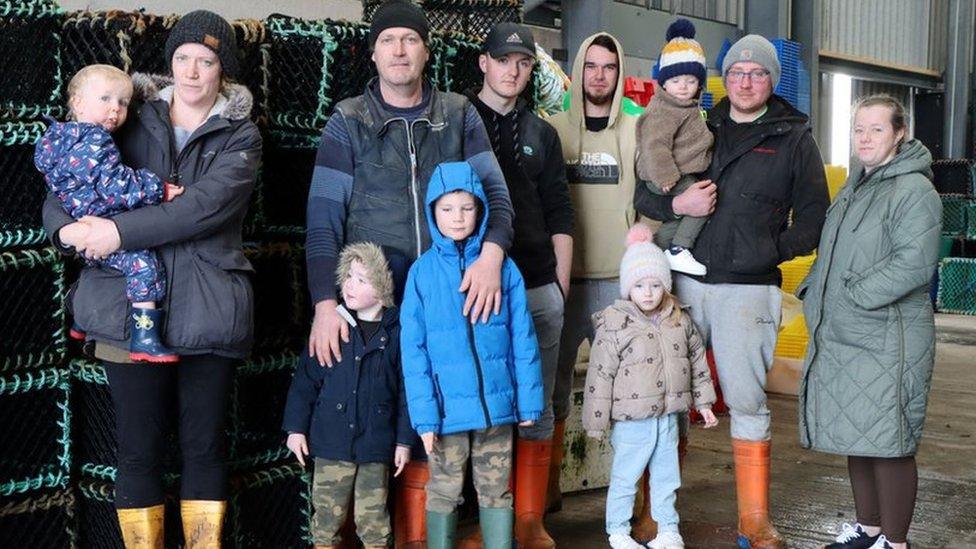Arran boat monitoring to research effect on marine life
- Published
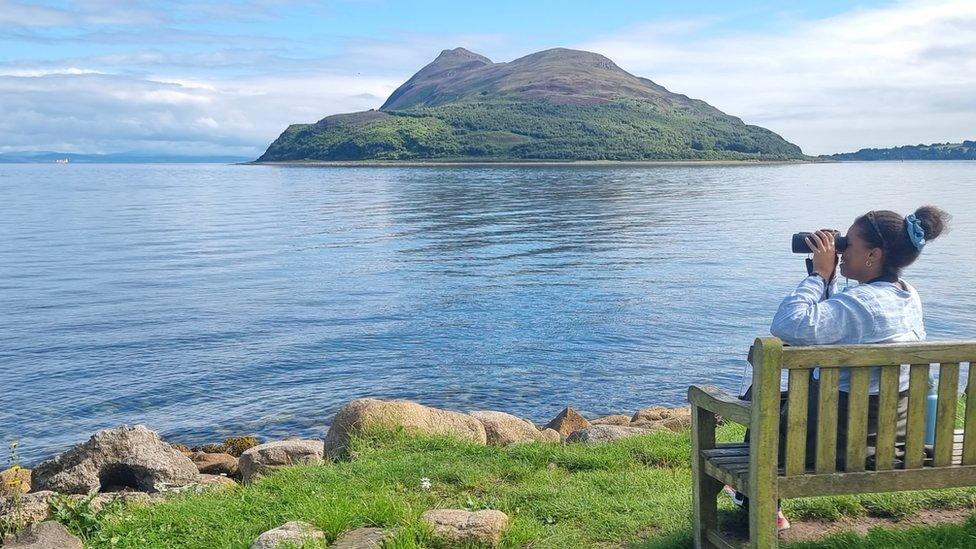
Heriot-Watt student Rebecca Olaleye will be keeping a close watch for the project
Scientists from Heriot-Watt University are to monitor the volume of boat traffic off the Isle of Arran.
Currently, boats under 15m (49ft) long do not have to register their presence with maritime authorities.
The scientists will join forces with the Community of Arran Seabed Trust to install an automatic identification system (AIS) receiver in Lamlash Bay.
The aim is to research the effect boat traffic may be having on marine life such as seals and dolphins.
Boats under 15m long make up 70% of all vessels in the area.
Heriot-Watt's Scottish Vessel Project received funding from the Natural Environment Research Council (NERC) and the charity Sea Changers to appoint an undergraduate student, Rebecca Olaleye, to work on the project.
Prof Lauren McWhinnie, of Heriot-Watt's Institute of Life and Earth Sciences, said: "Combining AIS data with land-based vessel counts will give us a more accurate picture of the number and types of vessels coming in and out of this environmentally-important area.
"Vessel traffic has potentially wide-ranging impacts on marine life. Boats can damage the seabed by anchoring on sensitive habitats such as reefs or impact protected species like seagrass beds that are found in Lamlash Bay's waters.
"Species like seals and dolphins are also sensitive to disturbance from boats. Their physical presence can cause changes to their behaviour, and the noise they emit can impact sea mammals' ability to communicate with each other".
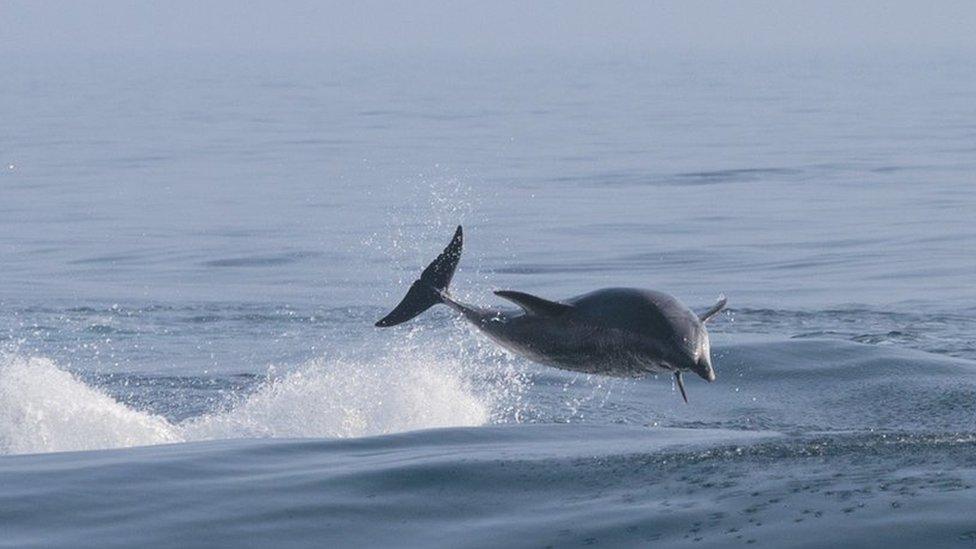
Lamlash Bay is Scotland's only "No Take Zone", meaning no fish, shellfish or other marine life can be taken from the seafloor or shore.
Sophie Plant. of Coast, said: "Lamlash Bay is home to some amazing marine life, including lobsters, scallops, seals, dolphins and one of the largest maerl beds in Scotland.
"Since the No Take Zone was established almost 15 years ago, researchers have seen significant increases in biodiversity and marine life density has more than doubled.
"This project with Heriot-Watt will allow Arran residents to understand boat activity in Lamlash Bay better so we can continue to work together as a community to protect the unique marine life of the area for many years to come."
- Published29 June 2023
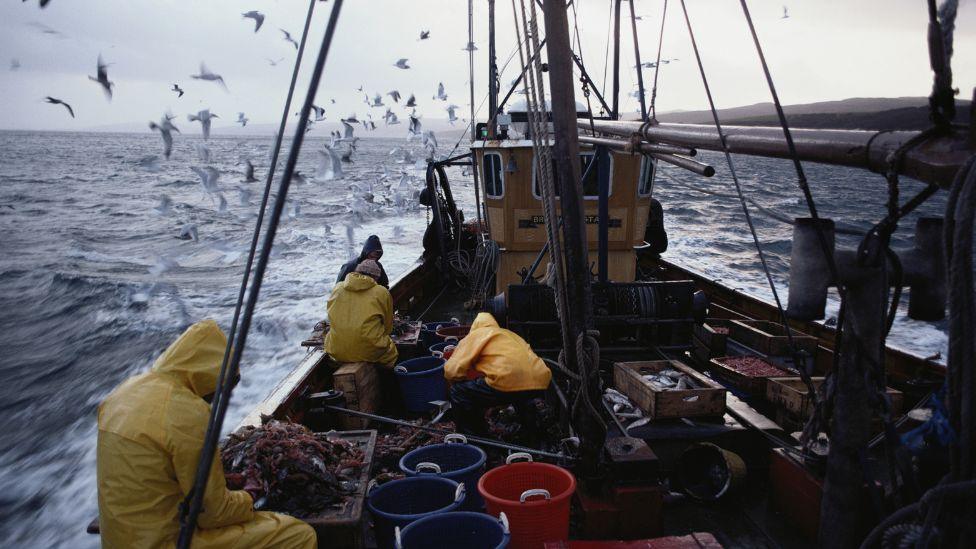
- Published29 June 2023
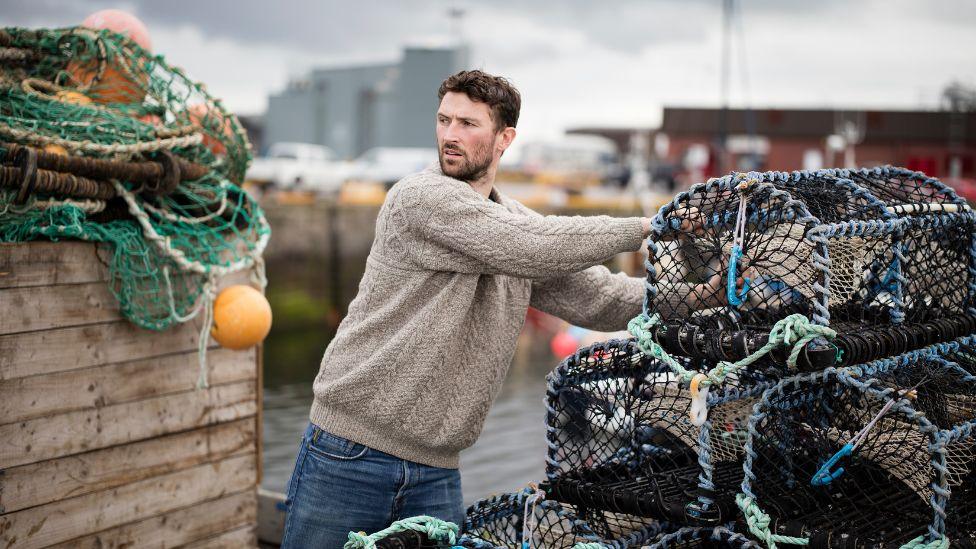
- Published15 March 2023
